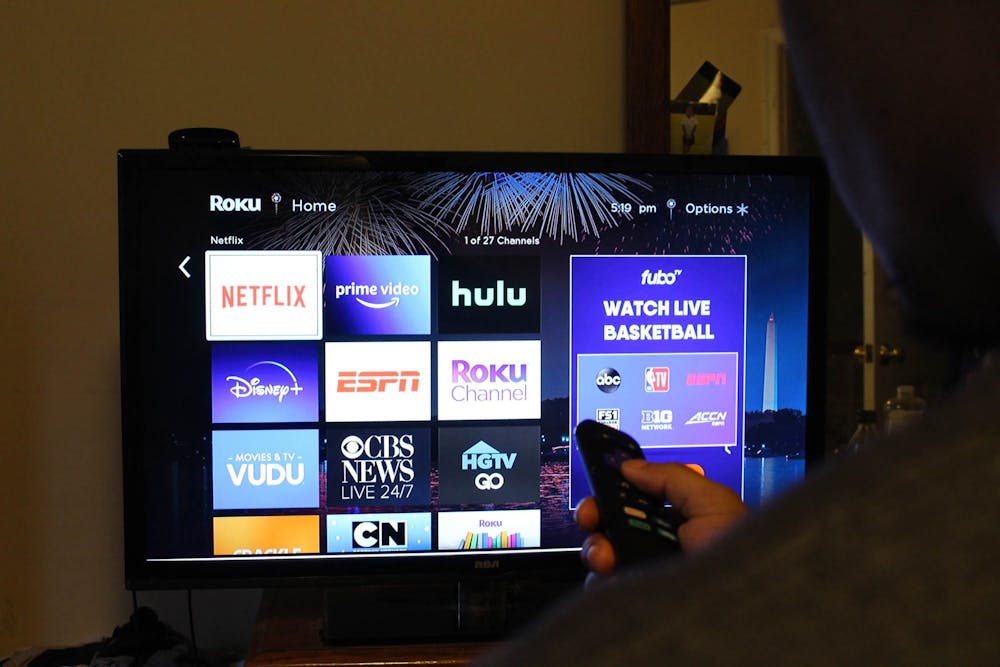This is somewhat true. Somewhere beneath the large “Dahmer” text with Peters’ face on it; beneath Peters winning Best Actor at The Golden Globe Awards, with no mention of the victims in his acceptance speech; beneath the viral tweet comparing scenes from the series to real footage, there is probably some sort of call for change. Viewers just have to wade through the noise of Dahmer to get there.
Meanwhile, the victims’ families get to turn on the television and see the man who ruined their lives brought back to life once more.
“That famous courtroom scene of the woman screaming at Dahmer, that is my cousin Rita. All of these movies, tv shows are triggering for the families of his victims still to this day,” tweeted Eric Perry, a relative of one of Dahmer’s victims, Errol Lindsey.
A clip of the real courtroom went viral, with 10.9 million views and 135.6 thousand likes as of March 1, after being compared to the scene featured in the limited series.
Rita Isbell, the sister of Errol Lindsey, said the show “bothered” her in an interview with Insider.
“It brought back all the emotions I was feeling back then. I was never contacted about the show," Isbell said. "They didn't ask me anything. They just did it.”
The obsession over Dahmer is not an uncommon one. True crime is a popular entertainment genre beyond Dahmer fans. At the time of publication, there are 27.6 billion views under the hashtag #truecrime on TikTok, and iTunes and Spotify host an abundance of popular podcasts dedicated to true crime. Nancy Glass’ interview of Dahmer in the jailhouse has garnered 37 million views to date. This combination of the "true crime craze" and Dahmer’s already high-profile case is what sky-rocketed this project by Netflix to popularity.
Despite potential good intentions, the more we remake old tragedies, the more we separate them from their original abuser and their original victims.
In the 1990s, Dahmer’s case felt real – something tangible and horrifying and possible. Now, with countless fictional projects based on the original events, people of this generation are more likely to shut their eyes and see Evan Peters, a man who was also in “Kick-Ass,” than the real Dahmer.
Where is the line?
To get the day's news and headlines in your inbox each morning, sign up for our email newsletters.
Authenticity quickly becomes exploitation when profit is involved. Big corporations like Comcast not only own DreamWorks and Universal Studios but also MSNBC and CNBC. News, movies and television existing under the same company give them all the same goal: to entertain.
The blurring line between what is news and what is entertainment allows us to separate ourselves even further from what is real and what is fake.
“It was so jaw-dropping that it all really happened that it felt important to be respectful to the victims and to the victims' families to try to tell the story as authentically as we could,” Peters said in a featurette for the series. Meanwhile Netflix allegedly never asked for consent from the family members to make the series.
As a queer Black woman, I can understand how important it is for people to know how race and homophobia played a huge role in the real Dahmer case. Even so, I would like to believe that the painful history of underrepresented groups does not have to be relived and dramatized on a big screen just to be heard and understood.
“It’s retraumatizing over and over again, and for what? How many movies/shows/documentaries do we need?” Perry tweeted.
The stories don’t have to be real to be enjoyable. If you’re looking for your next serial killer fix, I hear “Criminal Minds” is on its sixteenth season. It’s no Dahmer but, hopefully, it’ll do.
@dthopinion
opinion@dailytarheel.com



